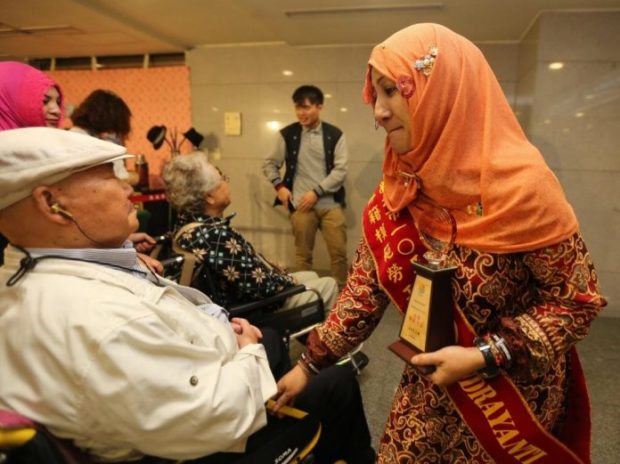
As of the end of June, there were 707,954 migrant workers in Taiwan, with Indonesia as the biggest source, accounting for 269,826, followed by Vietnam with 222,938, the Philippines 154,685, and Thailand 60,503, according to the Ministry of Labor. NOWnews via The China Post/Asia News Network
TAIPEI — Migrant workers in Taipei will be able to obtain basic medical checks and haircuts free of cost on Aug. 11, under an initiative launched earlier in the year by the city government, an official said Tuesday.
The medical checks will cover height, weight, body fat, and blood pressure readings as well as eye and dental examinations, according to Chen En-mei (陳恩美), a secretary at the Taipei City Foreign and Disabled Labor Office (FDLO), which is organizing the event.
Migrant workers who wish to have those checks, as well as free haircuts, will be required to present their alien resident certificates and national health insurance cards at the venue at Taipei Main Station, Chen said.
Information on health related topics, such as HIV prevention, will also be shared by health advisors, she said. “We’re taking this opportunity to show migrant workers that the city government cares about them,” Chen said.
She said other activities such as simple a Mandarin game will be held at the venue on Aug. 11, allowing migrant workers to win small gifts if they can recognize the characters for common household items such as toothpaste, soap and towel.
“This is aimed at helping the many migrant caregivers in Taipei to better communicate with their employers or elderly charges,” she said.
Under the FDLO initiative, a similar event was held on April 28, and two others are scheduled for Oct. 20 and Dec. 8, Chen said.
“These events are all being held on a Sunday because that’s when most migrant workers have a day off and many of them usually gather at Taipei Main Station to socialize with friends,” Chen said. “We’re inviting all migrant workers across the country to come and participate.”
As of the end of June, there were 707,954 migrant workers in Taiwan, with Indonesia as the biggest source, accounting for 269,826, followed by Vietnam with 222,938, the Philippines 154,685, and Thailand 60,503, according to the Ministry of Labor.
In Taipei, the number of migrant works as of the end of May was 46,554, 92.5 percent of whom were working as caregivers, according to FDLO statistics.


